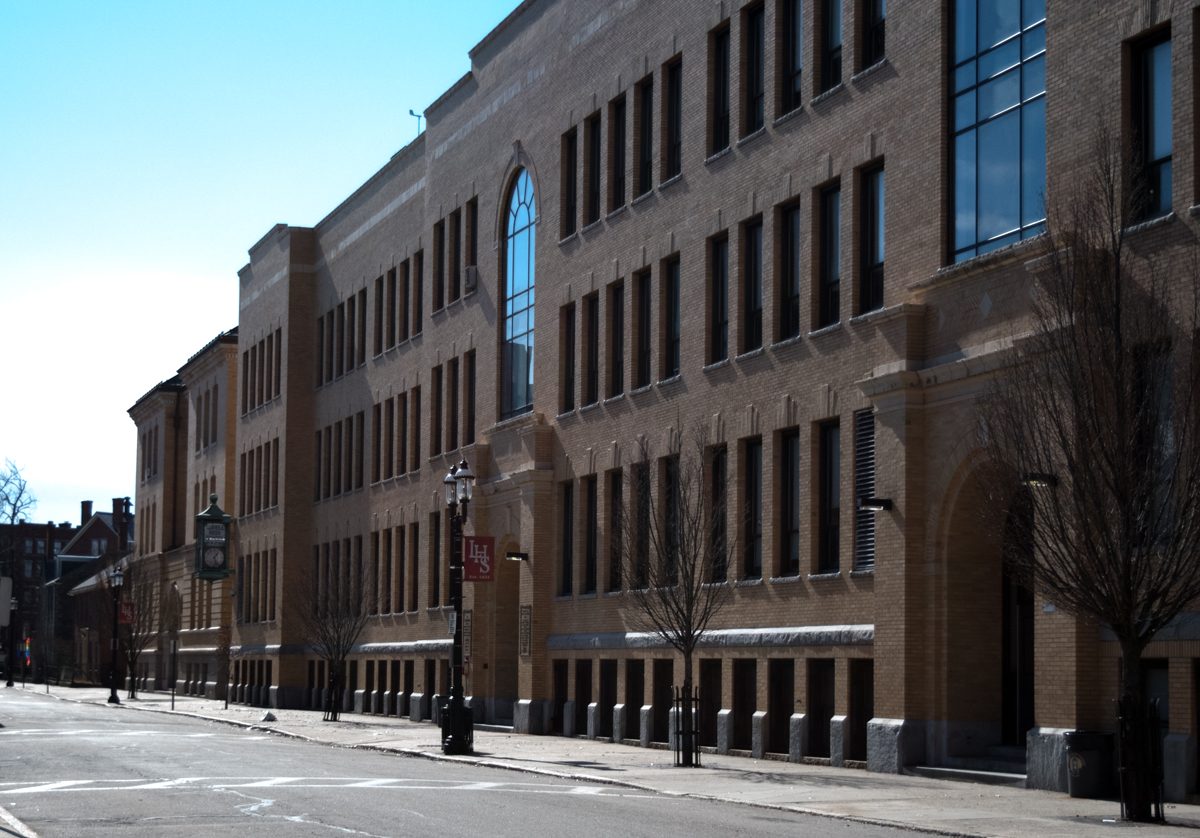Here we go... again
I t's budget time once again in Lowell and if you thought last year's budget was a squeaker, wait until you see this year's edition.I do not envy the Superintendents across Massachusetts. This is a pretty ugly time to try to keep programming viable when Foundation Budget calculations are 25 years out of date and when cities and towns have little appetite for raising tax revenues.If Lowell's budget proposal is any indication, most of the options for cutting without affecting direct services to students have been exercised. Now it is going to hurt. And one of those areas of pain seems to be library services.Like last year, the proposal is that the entirety of school libraries - with the exception of the High School - will be dismantled. I believe the only reason that the certified Library Media Specialist at the High School is retained only because, without this position, the High School could lose certification. Not a good thing.Historically, all of our schools had library-media specialists (click the link to see those requirements) AND library aides. Why? Because it was unthinkable that a school would not have a library where students learn literacy and research skills that they not only use later in life, but where students could go to be exposed to all manner of materials - video, audio, web-based, and of course print - that enhanced their love of literacy and literacy learning.When all but a few library media specialists were cut from a very lean budget, the library aides were there to pick up maintaining a welcoming school library. The aides became the last line of defense for school libraries, and a threatened one at that.Last year, there was a proposal to eliminate library aides, and the school libraries. The positions and the library programs were retained however because of some strong advocacy to increase the City's contribution to the school budget. And here we stand, a year later, with the same threat to eliminate all library aides across the District and push the school library collections into classrooms. As Yogi Berra once said, it's like deja vu all over again.I recently heard an educator equate a classroom library to a school library. That was a shock to me as a classroom library and a school library are two very different entities.Here is why I think such a statement is impossibly misinformed. My own classroom library (documented on this very blog) was curated by me, the books in the collection were not only purchased by me - all 2,000 of them. That's an important point. I am good at a lot of things, but I am not an expert at building a library collection. My book collections had biases - for example, I'm not a fan of science fiction, so I didn't buy a lot of that genre. If one of my students loved science fiction, those books could be checked out of the school library, a more eclectic and thoroughly curated collection of books.Last year, this is what I wrote about the value of our school libraries and the wonderful library aides that staff them:
t's budget time once again in Lowell and if you thought last year's budget was a squeaker, wait until you see this year's edition.I do not envy the Superintendents across Massachusetts. This is a pretty ugly time to try to keep programming viable when Foundation Budget calculations are 25 years out of date and when cities and towns have little appetite for raising tax revenues.If Lowell's budget proposal is any indication, most of the options for cutting without affecting direct services to students have been exercised. Now it is going to hurt. And one of those areas of pain seems to be library services.Like last year, the proposal is that the entirety of school libraries - with the exception of the High School - will be dismantled. I believe the only reason that the certified Library Media Specialist at the High School is retained only because, without this position, the High School could lose certification. Not a good thing.Historically, all of our schools had library-media specialists (click the link to see those requirements) AND library aides. Why? Because it was unthinkable that a school would not have a library where students learn literacy and research skills that they not only use later in life, but where students could go to be exposed to all manner of materials - video, audio, web-based, and of course print - that enhanced their love of literacy and literacy learning.When all but a few library media specialists were cut from a very lean budget, the library aides were there to pick up maintaining a welcoming school library. The aides became the last line of defense for school libraries, and a threatened one at that.Last year, there was a proposal to eliminate library aides, and the school libraries. The positions and the library programs were retained however because of some strong advocacy to increase the City's contribution to the school budget. And here we stand, a year later, with the same threat to eliminate all library aides across the District and push the school library collections into classrooms. As Yogi Berra once said, it's like deja vu all over again.I recently heard an educator equate a classroom library to a school library. That was a shock to me as a classroom library and a school library are two very different entities.Here is why I think such a statement is impossibly misinformed. My own classroom library (documented on this very blog) was curated by me, the books in the collection were not only purchased by me - all 2,000 of them. That's an important point. I am good at a lot of things, but I am not an expert at building a library collection. My book collections had biases - for example, I'm not a fan of science fiction, so I didn't buy a lot of that genre. If one of my students loved science fiction, those books could be checked out of the school library, a more eclectic and thoroughly curated collection of books.Last year, this is what I wrote about the value of our school libraries and the wonderful library aides that staff them:
... As a former educator, now retired, I am concerned with the short-sightedness of this action [eliminating library aides]. Library Aides not only check out materials for staff and for students, they maintain the school libraries as a welcoming environment in which to pursue literacy. Books that are in need of repair, are fixed and reshelved. New and replacement materials are added to school libraries. Weekly book exchanges are a time when students can explore new reading genres. The Library Aides also assist students using electronic card catalogues, a research skill that will be necessary as a student moves from grade to grade. Without the assistance provided by Library Aides will these valuable literacy and library skills still exist in the coming years? I do not think they will and I wonder if in a few years, the School Committee will be decrying the loss of library skills.
As Paul Begala once said, "a budget is a profoundly moral document" in that we fund what we value.If we value literacy, if we value fostering our students' love of literacy, we must also ensure that our school libraries remain and that our Library Aides continue in each and every school. We need to insist that our City funds our schools so that our students are not short-changed.And if you also think it is incomprehensible that an entire school district would shutter all but the High School's libraries, please let your elected officials, city council and school committee, know your thinking. Otherwise, what we value might be lost. Forever.
 Recently, the
Recently, the